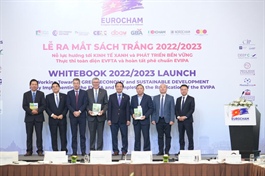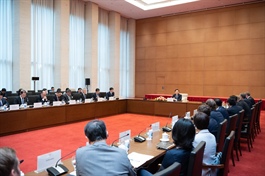Vietnamese and Japanese startups eye cooperation
Vietnamese and Japanese startups eye cooperation
Vietnamese and Japanese startups gathered on February 15 at the Vietnam-Japan Economic Forum to discuss the possibilities of further cooperation.

There were few startups in ASEAN a decade ago. At that time, startups were mostly operating in Silicon Valley, China, and the EU. However, the situation has changed since then and the number of startups in the region has grown significantlly. The startup ecosystem in Vietnam is developing particularly fast. Last year, Vietnam climbed five places to 54th place in the latest Global Startup Ecosystem Index according to StartupBlink.
Established in 2015, Vietnamese startup Abivin operates in Myanmar, Singapore, Indonesia, and Japan, providing software solutions for corporate governance in the transport, electronics, and construction industries. It is seeking to expand further.
Pham Nam Long, CEO and founder of Abivin said, “Japan is the world’s third-largest economy. So, it is a potential market for us. Our software can help businesses deal with labour recruitment and increase productivity”.
Similarly, another Vietnamese startup Fastech Asia, which runs the men's sportswear brand Coolmate, has seen its annual growth rate double then quadruple since it was established in 2019. In 2022, it reported revenue of $12 million. Coolmate has investment from a Japanese fund.
“We are expanding in Asia, the Philippines, and Indonesia,” said Pham Chi Nhu, CEO of Coolmate. “We plan to launch an initial public offering in Vietnam or elsewhere in Asia in 2025 to facilitate our expansion”.
At the event, Japanese startup Medring, a pioneer in healthtech developing medical SaaS and AI to support clinics in Vietnam, also expressed its interest in cooperating with Vietnamese firms.
Kazuma Abe, CEO and Founder of Medring said, “We want to partner with Vietnamese startups. We plan to introduce better products to the Vietnamese market, but also produce for export. We plan to develop a high-quality clinic in Indonesia and then do the same in Vietnam”.
Despite strong interest from the Japanese market and ongoing partnerships with Japanese firms, the two nations also face obstacles, with language being the most significant obstacle, "Vietnamese and Japanese startups should deal with the language problem soon, while developing appropriate products and marketing strategies for locals," said Abvin CEO Long.



















